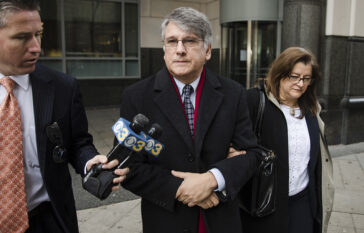May 31, 2018
Best of the States
Mentally disabled man made false confession to murder in 1998 – now it's used against him
A mentally disabled Louisiana man walked free last week after 20 years in prison for a killing his attorneys say he didn't commit. But New Orleans reporter Janet McConnaughey questioned why his plea agreement blames him for obstructing justice.
Corey Williams was a 16-year-old who still sucked his thumb, often wet himself and had been hospitalized for extreme lead poisoning when Shreveport, Louisiana, police brought him in for questioning in 1998 about a shooting that killed a pizza deliveryman.
For hours, he said he was innocent. Finally, Williams told police he did it and wanted to go home and lie down.
Two decades later, with doubts swirling around his murder conviction and the case submitted to the U.S. Supreme Court for review, Williams accepted a plea agreement, pleading guilty to manslaughter and obstructing justice.
McConnaughey asked the district attorney's office for documentation outlining the plea deal. There it was: Williams said he’d obstructed justice by removing evidence from the crime scene and by providing “a false inculpatory statement to police." Williams’ signature was in inch-high printing, with big circles over the i’s.
McConnaughey’s story received strong use by AP customers. For pursuing the underlying details and shining a light on a deal that set Williams free – but only after putting the blame on himself for a false confession – McConnaughey wins this week’s Best of the States award.










